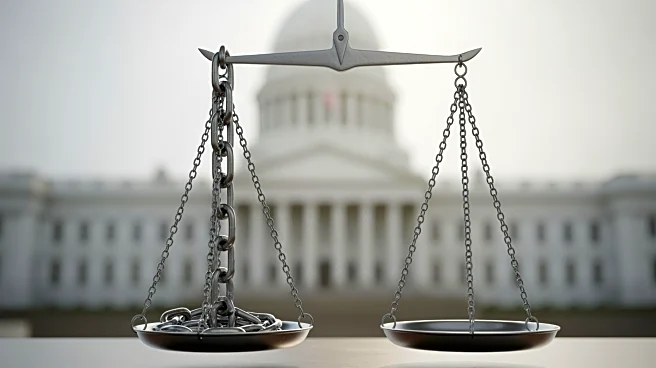What's Happening?
The U.S. Senate is working through the weekend to resolve a government shutdown that has persisted for over a month. The shutdown has resulted in unpaid government workers, flight cancellations, and delayed
SNAP benefits. A partisan impasse remains, with Republicans rejecting a proposal from Senate Democratic Leader Chuck Schumer to reopen the government and extend health care subsidies. A group of moderate Democrats, led by Sen. Jeanne Shaheen, is negotiating with some Republicans to find a compromise. The proposed deal involves reopening the government with a promise of a future health care vote, but many Democrats demand immediate action on extending Affordable Care Act subsidies.
Why It's Important?
The prolonged government shutdown has significant implications for millions of Americans, affecting essential services and economic stability. The deadlock highlights deep political divisions and the challenges of bipartisan cooperation. The outcome of these negotiations could set a precedent for future budgetary and policy disputes. The shutdown's resolution is critical for restoring government operations and addressing public needs, particularly in health care. The situation underscores the importance of effective governance and the impact of political decisions on everyday life.
What's Next?
As negotiations continue, a test vote on new legislation could occur soon. Democrats face a decision: continue pushing for a comprehensive health care deal or accept a temporary reopening of the government with a promise of future negotiations. The outcome will depend on whether Republicans and Democrats can reach a consensus that satisfies both parties' priorities. The resolution of this shutdown will likely influence future legislative strategies and political dynamics in Congress.








